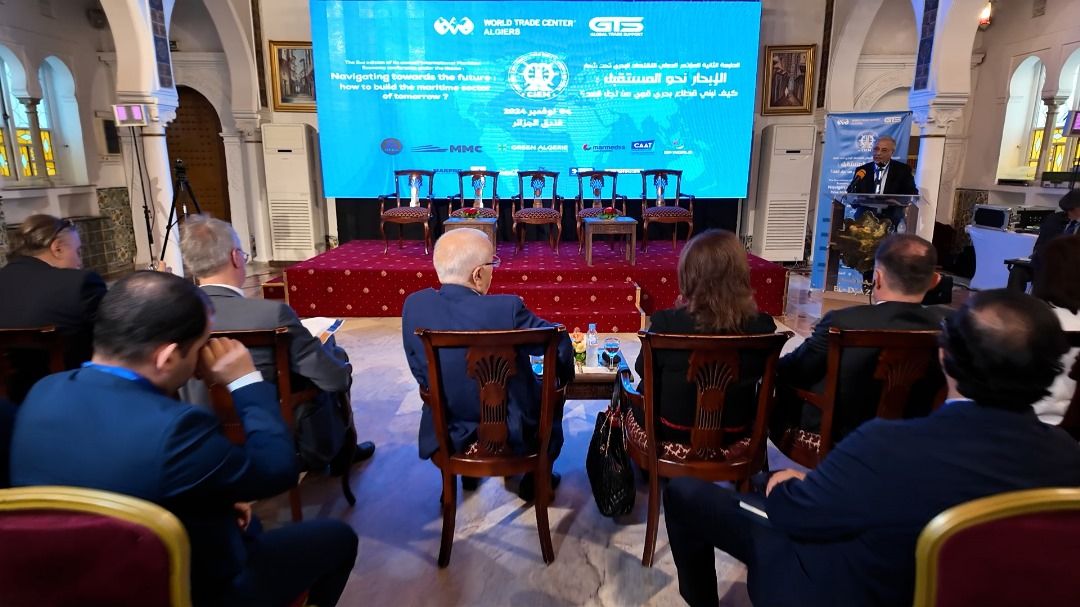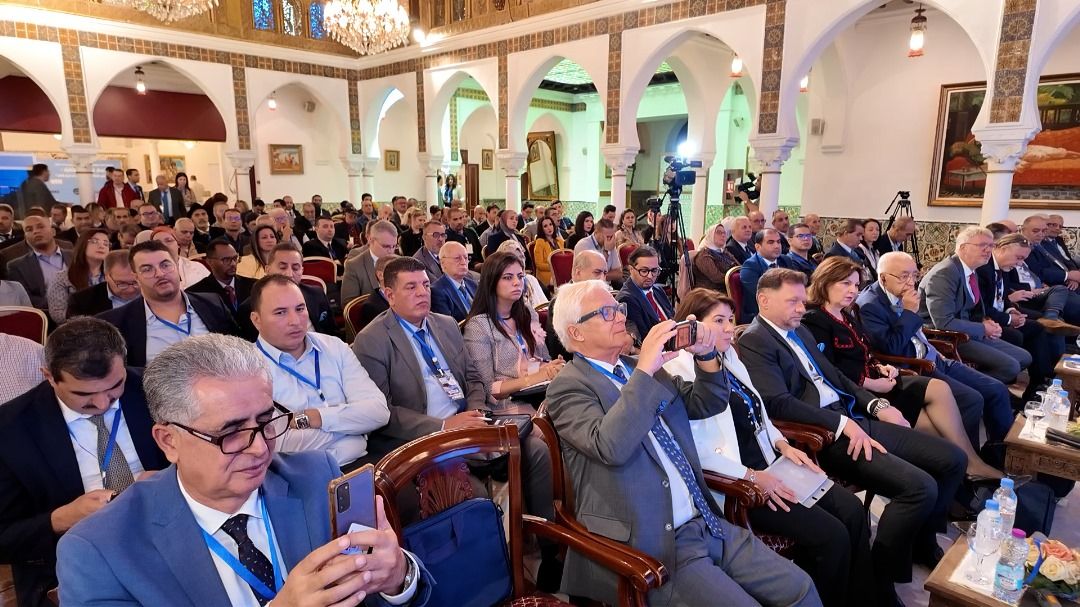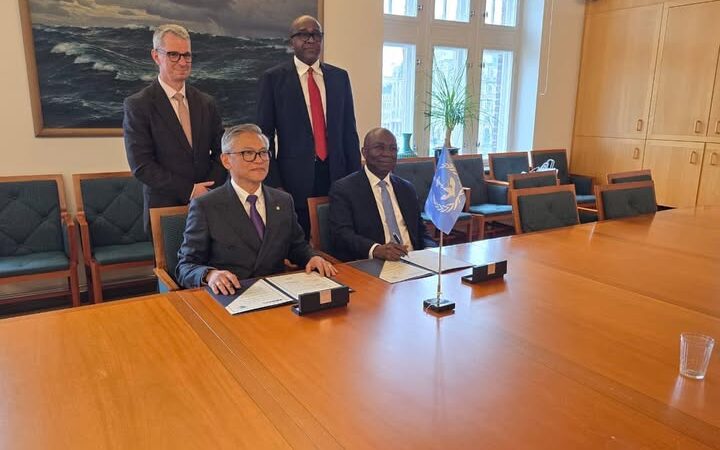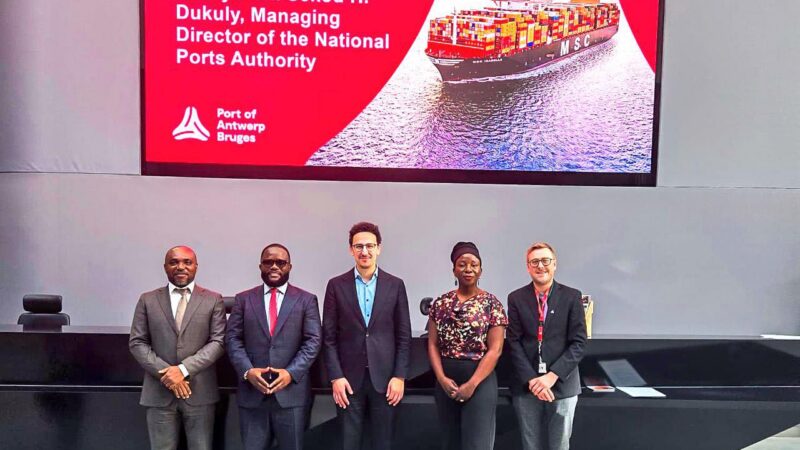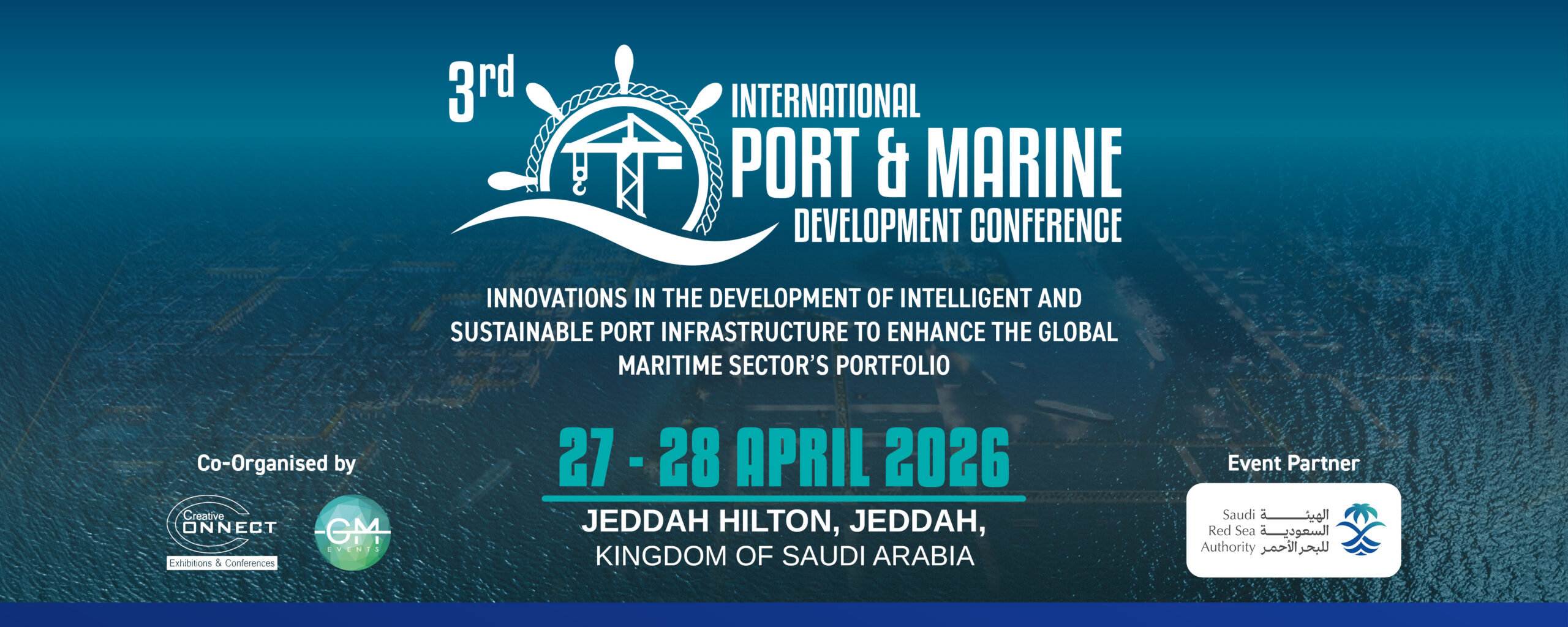A Gathering of Global Maritime Leaders at IMEC
On November 4, 2024, Algiers hosted a landmark event in the global maritime sector—the International Maritime Economy Conference, centered around the theme “Navigating Towards the Future.” The conference brought together maritime professionals, policymakers, and international experts from a diverse array of nations, emphasizing the industry’s critical role in shaping global trade, environmental sustainability, and technological innovation in the years to come.
This year’s conference was a pivotal moment for Algeria and the broader maritime community, providing a unique platform for high-level discussions on the future of the maritime economy, technological advancements, and the sustainable development of the shipping and logistics sectors. Held in the vibrant city of Algiers, the event highlighted Algeria’s growing importance as a maritime hub in the Mediterranean and beyond.
In his remarks, Mr. Ahmed Tibaoui, CEO of the World Trade Center Algiers, emphasized the importance of positioning Algeria as a leading player on the international stage. He stated, “It is imperative to give Algeria a prominent place on the international scene as an entry point and hub for Africa in the maritime and port sectors, to meet the expectations of national economic operators.” This statement highlights Algeria’s strategic vision to strengthen its role as a key maritime and logistics gateway, not only for North Africa but for the broader African continent. Mr. Tibaioui’s perspective aligns with the conference’s overarching theme of positioning Algeria at the forefront of global maritime trade and infrastructure development.
The conference attracted distinguished participants from various corners of the world, including experts from international maritime organizations, leading shipping companies, and influential policymakers. Among the key speakers and attendees were:
Mr. Jan Hoffmann, Head of Logistics at the United Nations Conference on Trade and Development (UNCTAD), who offered insights into the future of global logistics and the role of digital transformation in reshaping maritime trade.
Professor Norman Martinez, Director of the International Maritime Law Institute (IMO-IMLI), who provided a critical perspective on the evolving regulatory landscape and the role of maritime law in guiding the industry’s development.
Mrs. Eleonore Modde, Director of FONASBA (the Federation of National Associations of Shipbrokers and Agents), who discussed the importance of collaboration and cooperation between national and international shipping organizations to address the challenges facing the maritime industry.
Mr. Panos Xenokostas, President of Greek Shipyards and CEO of ONEX, a prominent figure in the global shipbuilding industry, who shared his vision for the future of shipbuilding and the integration of cutting-edge technologies into the maritime sector.
The presence of Mr. Samir Boumati, CEO of DP World El Djazair, underscored Algeria’s growing influence in the global logistics and port operations sector. DP World El Djazair, a key player in the country’s maritime infrastructure, has been instrumental in improving Algeria’s port capabilities and enhancing its connectivity with international trade routes. Mr. Boumati’s participation reflected Algeria’s commitment to strengthening its maritime and trade relations on the global stage.
Mr. Abdelkarim Rezal, a well-respected figure from Algeria’s Ministry of Transport, was a key contributor to the conference. Known for his extensive expertise and his influential role in shaping Algeria’s maritime policies, Mr. Rezal shared his insights into the country’s strategies for improving port infrastructure, enhancing maritime safety, and fostering sustainable growth in the transport sector.
The overarching theme of the conference, *”Navigating Towards the Future,”* highlighted the need for innovation and adaptation to emerging trends such as digitalization, sustainability, and the shift towards greener shipping practices. Discussions ranged from the impact of artificial intelligence and blockchain on supply chain efficiency to the role of green technologies in reducing carbon emissions within the maritime industry.
The conference also explored the maritime sector’s response to global challenges, such as the implementation of international regulations on emissions reduction, port modernization efforts, and the integration of sustainable practices into shipbuilding and operations. This theme was particularly resonant in the context of Algeria’s ambitions to position itself as a regional leader in maritime logistics and port development.
One of the most significant takeaways from the International Maritime Economy Conference was the emphasis on international cooperation. The maritime economy, by its very nature, is a global endeavor that requires constant collaboration among various stakeholders—from governments and regulators to shipping companies, port operators, and industry associations.
The presence of such a diverse range of international experts and organizations underscored the importance of dialogue and shared knowledge in advancing the interests of the global maritime sector. Algeria’s hosting of the event demonstrated the country’s commitment to playing a central role in shaping the future of global trade and maritime policy.
The International Maritime Economy Conference in Algiers was an undeniable success, bringing together maritime professionals, innovators, and policymakers to chart a course for the future of the industry. Through collaboration, exchange of ideas, and the sharing of best practices, the conference underscored the importance of innovation, sustainability, and cooperation in navigating the challenges and opportunities that lie ahead for the maritime economy.
As the conference concluded, the collective message was clear: the future of the maritime industry is one of transformation and opportunity, driven by technological advances and a renewed focus on sustainable practices. With Algeria at the heart of these discussions, the event marked a significant step forward in strengthening the global maritime community and ensuring that the industry is well-positioned for the challenges and opportunities of tomorrow.
Source : World Trade Centers Association


